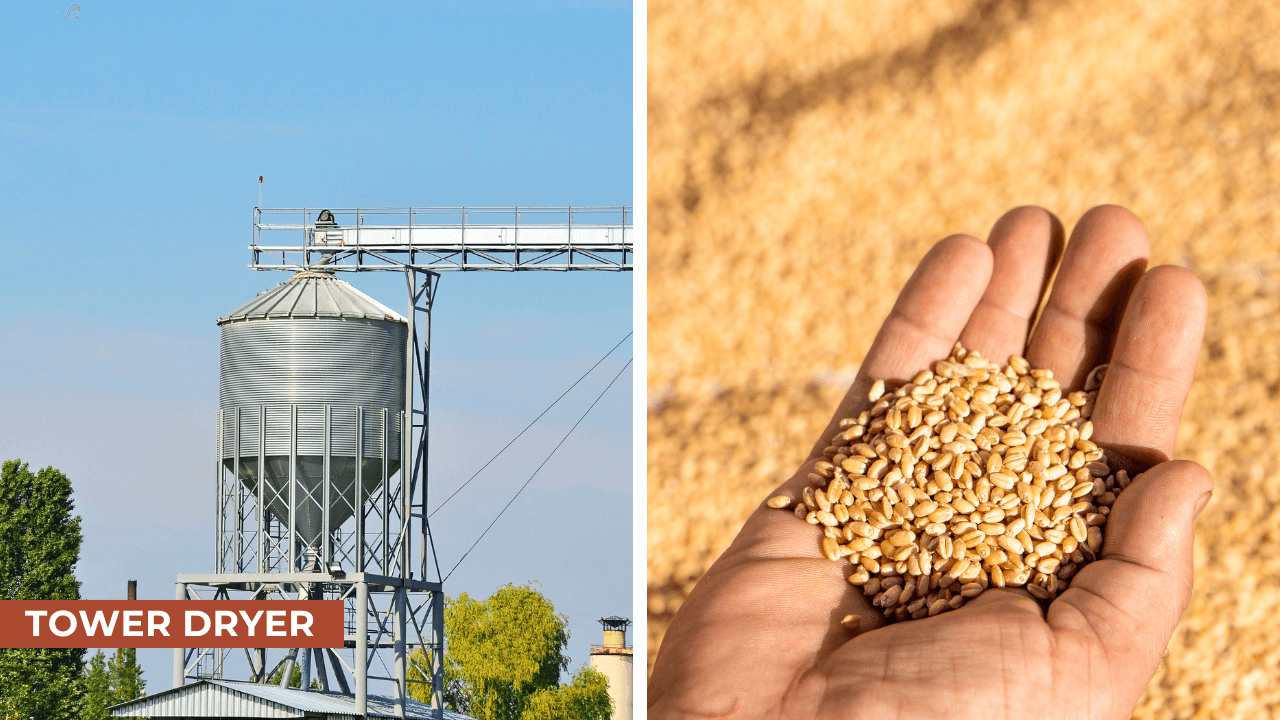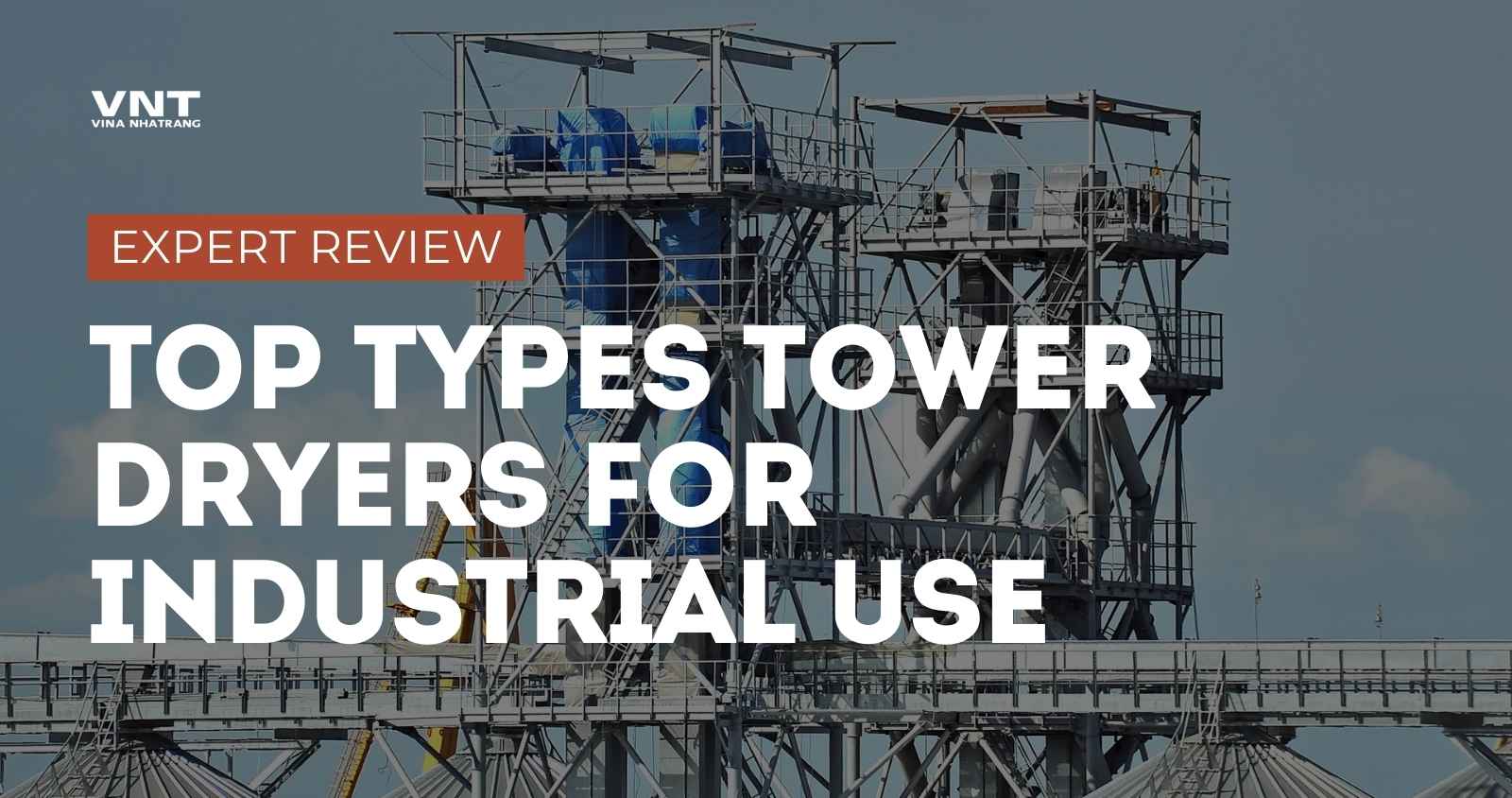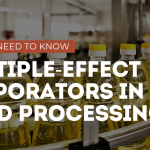Introduction
Tower dryers are an essential component in industrial and agricultural operations, playing a pivotal role in reducing moisture content efficiently. These vertical systems are particularly valued for their ability to handle large volumes of material with consistent drying quality. Whether you’re drying grains, seeds, or industrial materials, the right tower dryer can make a significant difference in productivity and cost savings.
Choosing the appropriate type of tower dryer depends on various factors, including the type of material, operational scale, and energy efficiency requirements. By understanding the different types available, you can ensure that your investment delivers optimal results.
What Are Tower Dryers?
Tower dryers are specialized vertical drying systems designed to remove moisture from materials such as grains, seeds, or other bulk solids. They utilize heated air to dry materials as they pass through a structured drying column. The vertical design not only conserves floor space but also ensures uniform drying by allowing consistent airflow through the material.
In agriculture, tower dryers are commonly used for drying grains like corn, wheat, and rice, preventing spoilage and improving storage longevity. Similarly, in industrial settings, they are employed for drying materials like sand, chemicals, and other raw substances, ensuring they meet specific moisture content requirements for further processing.

To find a tower dryer that matches your industrial or agricultural needs, check out Vinanhatrang’s selection of tower dryers.
Types of Tower Dryers
Understanding the different types of tower dryers is crucial for selecting the right one for your application. Each type offers unique advantages suited to specific materials and processes. Here’s an in-depth look:
Continuous Flow Tower Dryers
Continuous flow tower dryers are designed for operations requiring high throughput. In this system, material enters the top of the dryer and continuously moves downward through a heated air stream. This method allows for consistent drying, making it ideal for large-scale agricultural or industrial processes.
- Features:
- Constant material movement for uninterrupted operation.
- High drying capacity to handle large volumes.
- Optimized energy efficiency through advanced airflow systems.
- Best For:
Large-scale grain operations or industrial processes that demand consistent moisture reduction without halting production.
Batch Tower Dryers
Batch tower dryers are perfect for scenarios where precise control over drying conditions is required. Unlike continuous systems, these dryers process materials in fixed amounts, ensuring uniform moisture removal for each batch.
- Features:
- Allows for customizable drying settings for different materials.
- Suitable for small-scale or high-value material drying.
- Easier to maintain and monitor due to segmented processing.
- Best For:
Applications requiring specialized drying for sensitive materials or lower throughput operations.
Mixed-Flow Tower Dryers
Mixed-flow dryers integrate both cross-flow and concurrent-flow drying methods, allowing heated air to move in multiple directions. This ensures uniform drying and accommodates materials with varying moisture levels.
- Features:
- Combines multiple airflow patterns for thorough drying.
- Versatile design adaptable to diverse materials.
- Reduces energy consumption while maintaining quality.
- Best For:
Operations dealing with mixed moisture levels or diverse material types.
Counter-Flow Tower Dryers
Counter-flow dryers utilize a system where the material and heated air move in opposite directions. This design ensures maximum heat transfer efficiency and gentle drying, making it ideal for delicate materials.
- Features:
- Opposing airflow maximizes drying effectiveness.
- Energy-efficient design reduces operational costs.
- Gentle handling of materials to maintain integrity.
- Best For:
Processes requiring uniform drying with minimal impact on material quality.
Key Factors to Consider When Choosing a Tower Dryer
Selecting the right tower dryer involves evaluating various factors to ensure it meets your operational needs. Here’s a closer look at the critical considerations:
Capacity and Throughput Requirements
- The size and capacity of the dryer should align with the volume of materials you need to process. For large-scale operations, continuous flow tower dryers are ideal, while batch dryers are better suited for smaller, specialized tasks.
Tip: Assess your current and projected processing needs to avoid underutilizing or overburdening the system. If you’re unsure, consult a provider like Vinanhatrang to determine the best fit for your operation.
Energy Efficiency and Operational Costs
- Energy consumption can significantly impact the long-term cost of running a tower dryer. Advanced models with optimized airflow systems and heat recovery technologies can reduce energy use, improving sustainability and profitability.
Type of Material to Be Dried
- Different materials require specific drying conditions. For example, grains with high initial moisture content may benefit from continuous flow or mixed-flow dryers, while fragile materials may require the gentle handling of counter-flow systems.
Ease of Maintenance and Durability
- Downtime due to maintenance issues can disrupt operations and increase costs. Opt for durable systems with easy access to components for cleaning and repairs.
Advantages of Using Tower Dryers
Tower dryers provide numerous benefits that enhance operational efficiency and product quality.
Improved Drying Efficiency
- Modern tower dryers are equipped with advanced features like optimized airflow systems and precise temperature controls, ensuring rapid and uniform drying.
Space-Saving Vertical Design
- The vertical structure of tower dryers requires less floor space compared to horizontal systems, making them ideal for facilities with limited space.
Scalability and Versatility
- Tower dryers can accommodate various materials and scales of operation. Whether you’re expanding a facility or diversifying your materials, there’s a dryer to suit your needs.
Tips for Maintenance and Optimization
Proper maintenance and optimization are key to ensuring the longevity and efficiency of tower dryers. Here’s how you can maximize the performance of your system:
Regular Inspections
- Conduct routine inspections to identify wear and tear or potential issues early. Pay close attention to critical components like fans, heat exchangers, and drying columns.
Cleaning and Debris Removal
- Material buildup inside the dryer can reduce airflow efficiency and compromise drying quality. Regular cleaning ensures that the system operates at optimal capacity.
Monitor Temperature and Airflow Controls
- Proper temperature and airflow settings are critical for effective drying. Overheating can damage materials, while inadequate airflow may result in uneven drying.
Address Common Issues Promptly
- Common issues like uneven drying or mechanical noise should be addressed immediately to prevent further damage or efficiency loss.
Conclusion
Tower dryers are indispensable for industrial and agricultural applications, offering efficient, high-capacity drying solutions. By understanding the types of tower dryers and carefully considering factors like capacity, energy efficiency, and material compatibility, you can make an informed decision that enhances productivity and minimizes costs.
FAQs
- What is the main difference between batch and continuous flow tower dryers?
Batch dryers process fixed quantities at a time, providing precise control, while continuous flow dryers handle materials continuously, ideal for high-capacity operations. - How do mixed-flow dryers enhance drying efficiency?
Mixed-flow dryers allow air to move in multiple directions, ensuring uniform drying and accommodating materials with varying moisture levels. - Can tower dryers be customized for specific materials or processes?
Yes, many manufacturers, including Vinanhatrang, offer customization options to tailor dryers to your unique operational needs.




